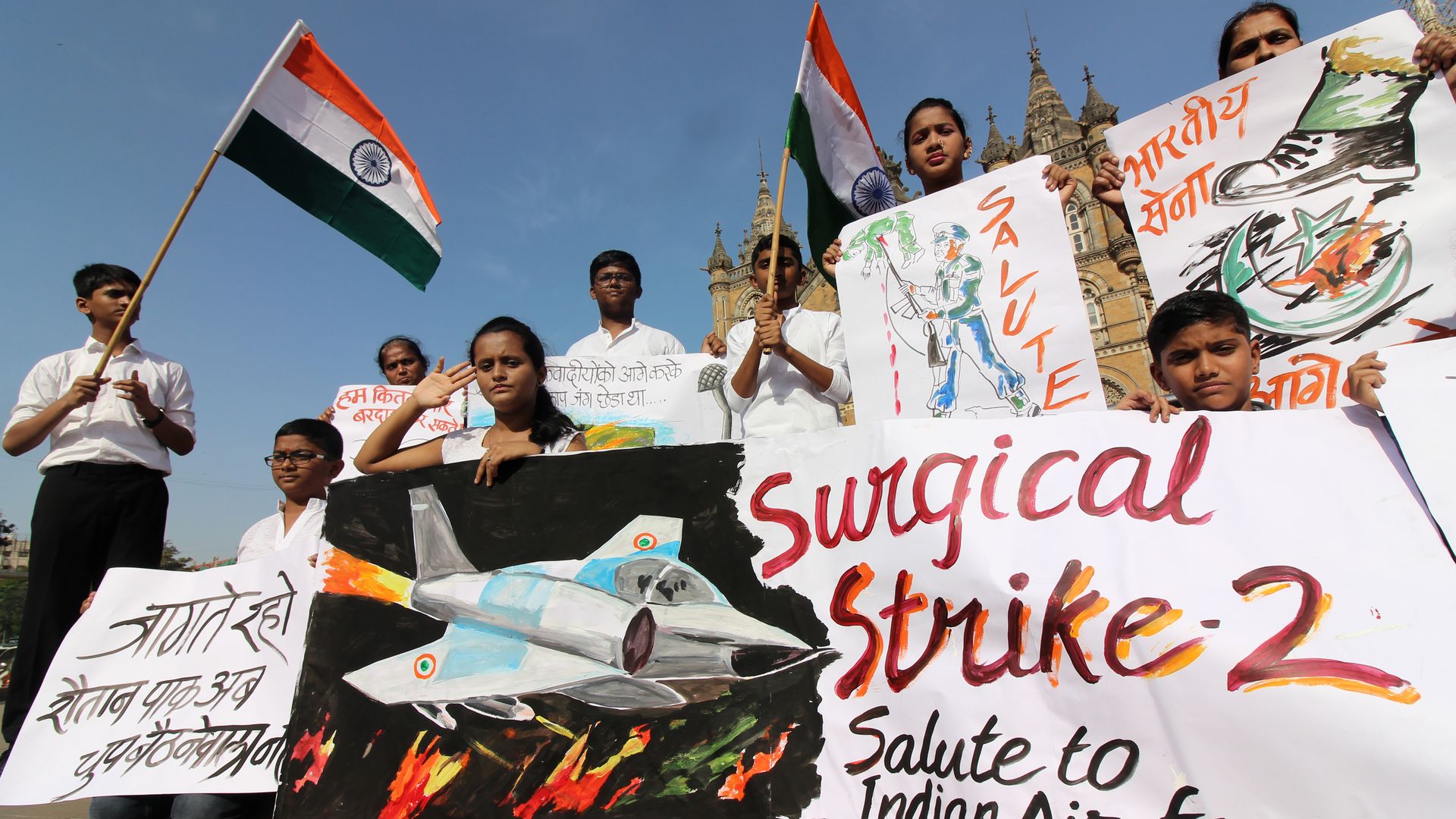Reciprocal attacks inflame India-Pakistan hostilities
Add Axios as your preferred source to
see more of our stories on Google.

Indians celebrate after the Indian Air Force's airstrike on a Jaish-e-Mohammed terrorist camp in Pakistan, in Mumbai, on Feb. 26. Photo: Himanshu Bhatt/NurPhoto via Getty Images
In retaliation for the Feb. 14 terrorist attack in the Pulwama district of Kashmir, which killed 44 Indian security personnel, the Indian Air Force (IAF) conducted strikes on Tuesday against an alleged terrorist training facility and madrassa complex in the Pakistani town of Balakot.
Why it matters: The operation was the first cross-border sortie by the IAF since the 1971 India-Pakistan war. Escalating tensions have sparked fears of a standoff between the nuclear-armed rivals.
Details: Although the facts are in dispute, the airstrikes apparently targeted Jaish-e-Mohammed, a UN-sanctioned terrorist group that claimed responsibility for the Pulwama attack, among others in India. Both the Pulwama attack, the bloodiest such incident in the disputed territory of Kashmir in over three decades, and the strikes on Balakot, which lies outside the region, marked escalations from previous incidents.
What to watch: In a week when the U.S. is focused on the Trump-Kim summit, Venezuela, and Taliban negotiations in Qatar, other regional powers will likely take the lead in restraining the two sides:
- Saudi Arabia's Crown Prince Mohammed bin Salman visited Pakistan and India last week. With Pakistan increasingly dependent on Saudi support to stave off financial crisis, Riyadh’s private messages of restraint might hold sway.
- China, another Pakistani benefactor and close partner of Pakistan’s army, condemned the Pulwama attack yet urged caution. But Beijing’s persistent shielding of Pakistan from UN sanctions is likely to bubble over at a Russia-India-China foreign ministerial meeting that starts today in Wuzhen, China.
Pakistan, after claiming that the strikes hit nothing but trees and soil, is likely to convene an emergency parliamentary session tomorrow to condemn India’s action. India hopes that Pakistan’s reaction will be all fury but no fire.
Yes, but: Electoral politics in the lead-up to India's May elections is likely to produce chest-thumping from Prime Minister Narendra Modi's government and the IAF that could provoke a more direct Pakistani reaction.
The bottom line: Indian observers hope that the enhanced military capabilities demonstrated in India's attack will deter future Pakistani terrorism. But that seems unlikely, as Pakistan relies on militant proxies and the world's fastest-growing nuclear arsenal to counterbalance India. The challenge for New Delhi will be mitigating terrorism without inciting reactions that could prove disastrous to India's prospects as an emerging power.
James Schwemlein is a nonresident scholar at the Carnegie Endowment for International Peace and a former U.S. State Department official.
